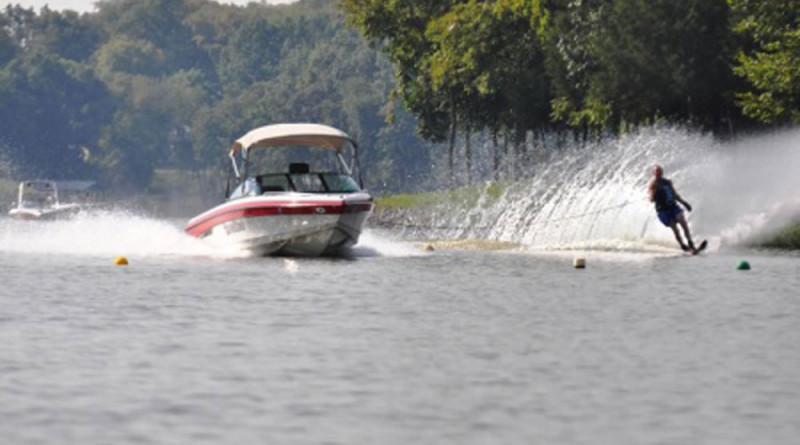Coast Guard developing Recreational Boating Accident Reporting Manual
NATIONWIDE — A federal policy on reporting conventions for recreational boating accidents is about to be overhauled for the first time in five decades.
The U.S. Coast Guard announced last month it will be accepting public comments through Nov. 19 for its draft Recreational Boating Accident Reporting Manual, which will replace the Standard Method of Reporting (Boating Accidents).
Federal officials last published the Standard Method of Reporting (Boating Accidents) in September 1973.
“The Coast Guard is soliciting comments on the manual in an effort to provide better guidance since the predecessor manual is dated,” said Coast Guard spokesperson Susan Weber. “After the comment period has ended, the Coast Guard will review all comments received and update the manual. We will then clear the manual internally and issue a second notice that will include the final manual and responses to comments.”
The draft Recreational Boating Accident Reporting Manual is based upon the Coast Guard’s National Recreational Boating Safety Program.
“The Coast Guard’s National Recreational Boating Safety Program aims to reduce accidents, injuries and deaths on America’s waterways and to facilitate safe enjoyable boating,” Capt. Verne B. Gifford, the Coast Guard’s director of inspections and compliance, said in a Federal Register notice published on Aug. 21. “It promotes greater uniformity among states and localities in boating safety laws, enforcement and administration. The program also requires boating safety reporting by states and boaters involved in accidents.”
Coast Guard staff added the new manual addresses several broad topics, such as regulations, vessel determinations, accident scenarios policy, definitions of terms, report form and reporting system, expected roles of the Coast Guard and state, and investigation and data entry expectations.
“The manual is designed to provide state marine agencies (such as the California Department of Parks and Recreation) with greater understanding of the National Recreational Boating Safety Program’s accident reporting requirements,” Weber said. “The manual broadly addresses accident reporting procedure including an explanation of applicable regulations, report forms, report system, and the roles of federal and state governments in accident reporting.”
A Coast Guard sponsored report published in 2006 stated non-fatal boating statistics was significantly under-reported. The report also found the Coast Guard lacked data and methods to determine the social costs of boating accidents and gathering of accurate numbers of how alcohol use contributes to incidents would be valuable to federal officials. These three issues, the Coast Guard report stated, underscored the need to update boating accident reporting standards and mandates.
Weber said the federal manual would be reviewed annually and updated whenever necessary.
The National Association of State Boating Law Administrators (NASBLA) issued a resolution in 2007 calling for the Standard Method of Reporting (Boating Accidents) to be updated as “a wide variety of new and innovated watercraft” was introduced nationwide since the federal policy took effect in 1973 and a number of verbal and written alterations to the current manual “contributed to unnecessary confusion and inconsistent accident reporting.”
The Coast Guard does not intend to hold a public meeting before or after the comment period closes.
“We do not now plan to hold a public meeting. But you may submit a request for one, using one of the methods specified under [the ‘addresses’ section of regulations.gov],” Gifford stated in the Federal Register notice. “Please explain why you believe a public meeting would be beneficial. If we determine that one would aid this rulemaking, we will hold one at a time and place announced by a later notice in the Federal Register.”
Public comments are being accepted through Nov. 19 via the federal e-rulemaking portal at regulations.gov, fax at 202-493-2251 or mail at Docket Management Facility (M-30), U.S. Department of Transportation, West Building Ground Floor, Room W12-140, 1200 New Jersey Avenue SE, Washington, D.C. 20590-0001.
Coast Guard officials are legally responsible for monitoring, studying and releasing recreational boating data and information. The data and information are generally used to identify causes of accidents, evaluate the benefits of government initiatives such as boater education programs and reduce or manage any inherent risks associated with recreational boating.
“We also remind the public of the federal requirement to report a boating accident to a state or local marine agency whenever there is a death, injury that required treatment greater than first aid, damages sustained in the accident that totaled $2,000 or more, or a complete loss of vessel, meaning that at least one vessel was destroyed as a result of the accident,” Weber said. “States may have a lower damage or injury threshold for accidents that require reporting.”


